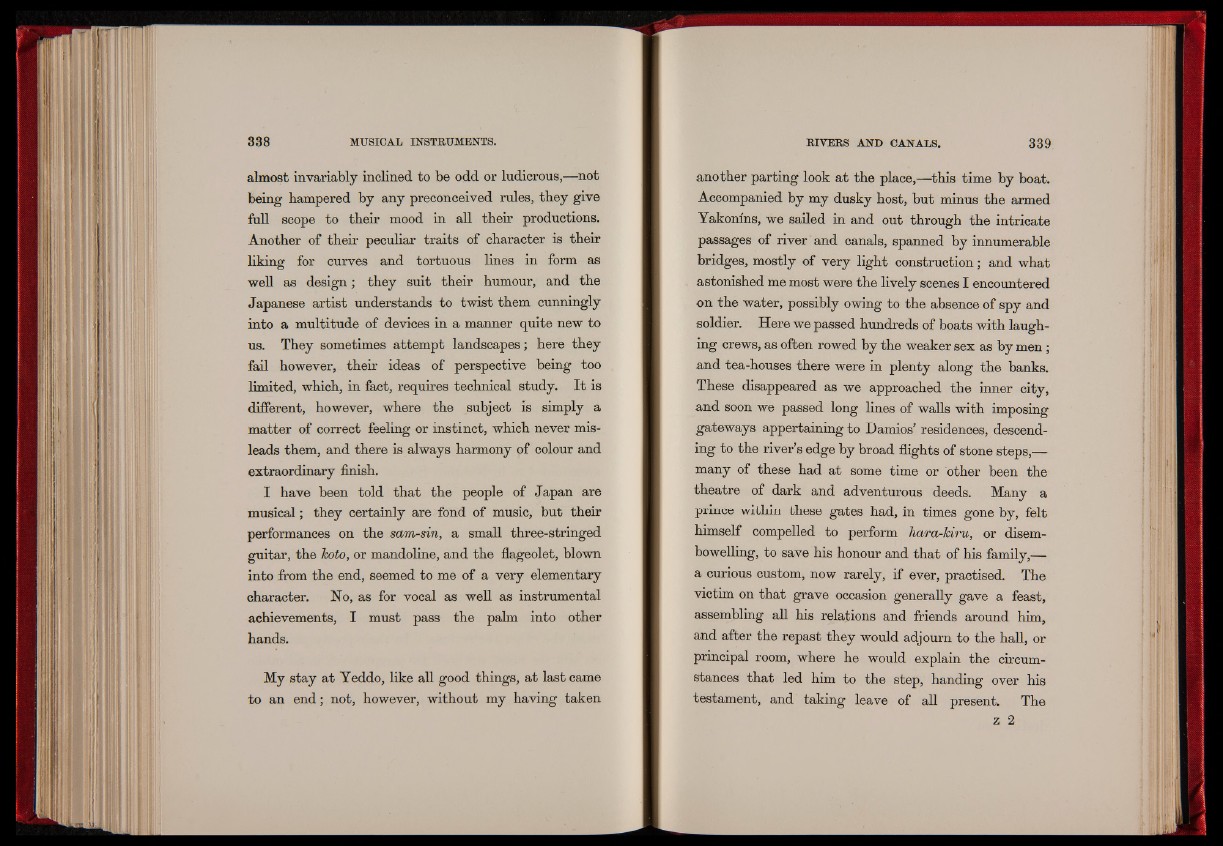
almost invariably inclined to be odd or ludicrous,—not
being hampered by any preconceived rules, they give
full scope to their mood in all their productions.
Another of their peculiar traits of character is their
liking for curves and tortuous lines in form as
well as design; they suit their humour, and the
Japanese artist understands to twist them cunningly
into a multitude of devices in a manner quite new to
us. They sometimes attempt landscapes; here they
fail however, their ideas of perspective being too
limited, which, in fact, requires technical study. I t is
different, however, where the subject is simply a
matter of correct feeling or instinct, which never misleads
them, and there is always harmony of colour and
extraordinary finish.
I have been told th a t the people of Japan are
musical; they certainly are fond of music, but their
performances on the sam-sin, a small three-stringed
guitar, the koto, or mandoline, and the flageolet, blown
into from the end, seemed to me of a very elementary
character. No, as for vocal as well as instrumental
achievements, I must pass the pahn into other
hands.
My stay at Yeddo, like all good things, at last came
to an en d ; not, however, without my having taken
another parting look at the place,—this time by boat.
Accompanied by my dusky host, but minus the armed
Yakonins, we sailed in and out through the intricate
passages of river and canals, spanned by innumerable
bridges, mostly of very light construction; and what
astonished me most were the lively scenes I encountered
on the water, possibly owing to the absence of spy and
soldier. Here we passed hundreds of boats with laughing
crews, as often rowed by the weaker sex as by men;
and tea-houses there were in plenty along the banks.
These disappeared as we approached the inner city,
and soon we passed long lines of walls with imposing
gateways appertaining to Damios’ residences, descending
to the river’s edge by broad flights of stone steps,—
many of these had at some time or other been the
theatre of dark and adventurous deeds. Many a
prince within these gates had, in times gone by, felt
himself compelled to perform hara-Jaru, or disembowelling,
to save his honour and th a t of his family,—
a curious custom, now rarely, if ever, practised. The
victim on that grave occasion generally gave a feast,
assembling all his relations and friends around him,
and after the repast they would adjourn to the hall, or
principal room, where he would explain the circumstances
that led him to the step, handing over his
testament, and taking leave of all present. The
z 2